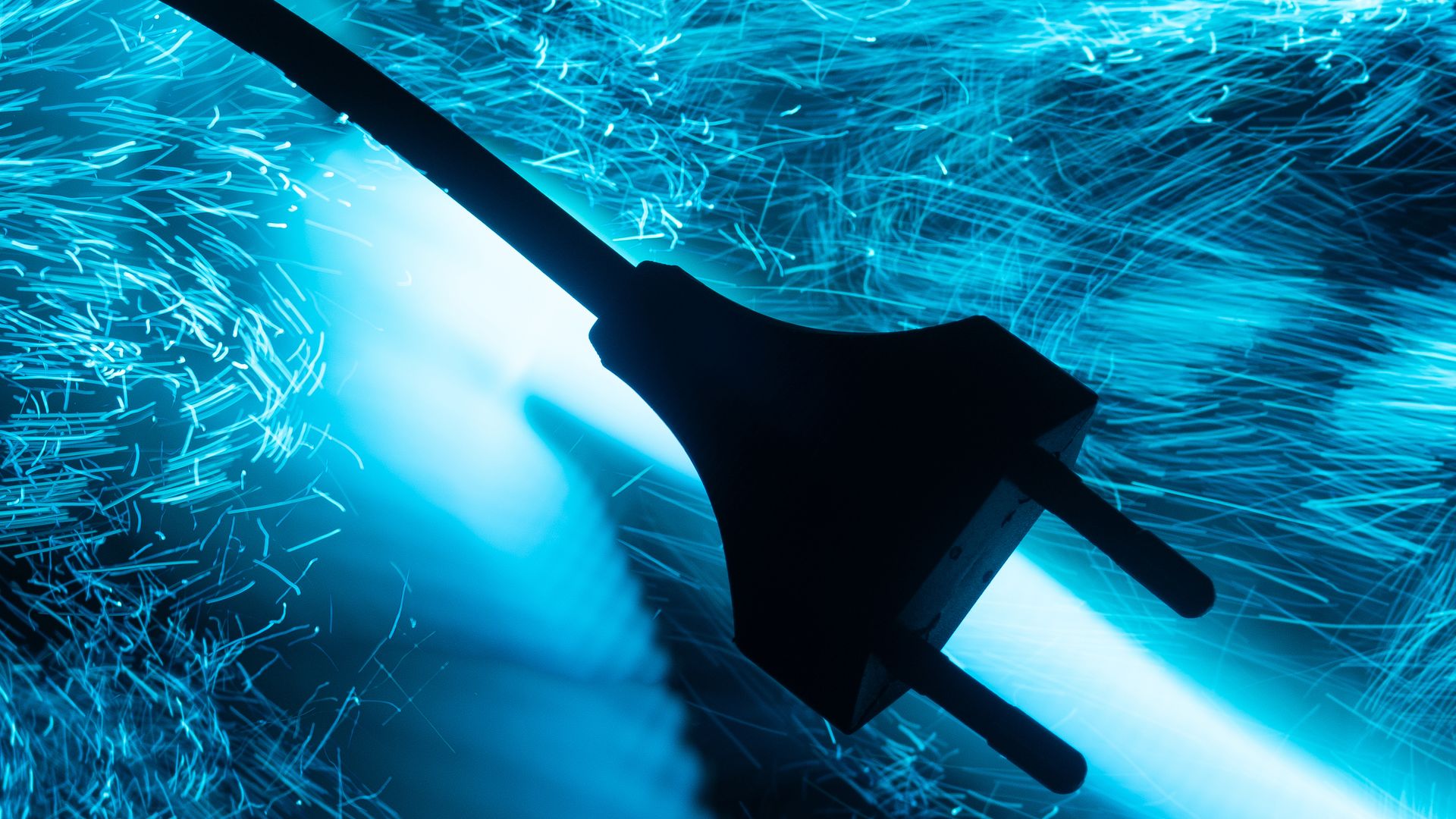
Arkansas may have 19 million tons of lithium crucial for EV batteries: Study
By Jack Aylmer (Anchor), Evan Hummel (Producer), Michael Edwards (Video Editor )
A massive lithium deposit in the United States could reshape the world’s energy needs. Researchers from the U.S. Geological Survey announced on Wednesday, Oct. 23, that they had discovered between 5 million and 19 million tons of lithium deposits underneath southwestern Arkansas. For reference, 5 million tons would reportedly be enough to meet projected 2030 global demand for lithium batteries in electric vehicles nine times over.
Media Landscape
See how news outlets across the political spectrum are covering this story. Learn moreBias Distribution
Left
Untracked Bias
The USGS reportedly used artificial intelligence to analyze samples from the so-called “Smackover formation,” a remnant of a 200-million-year-old sea covering parts of Arkansas and several other Southern states. The AI model then used data to predict lithium concentrations in the region and generate maps.

Download the SAN app today to stay up-to-date with Unbiased. Straight Facts™.
Point phone camera here
Now, the work is beginning to figure out how to extract the valuable resource. Arkansas’ lithium abundance has already reportedly caught the eye of Exxon Mobil, which hopes to mine the metal.
However, geologists note that lithium is extremely difficult to extract, and is linked to water depletion and other environmental hazards. They warn that it is not yet known the amount of money and effort it will take to unearth it.
Lithium is vital for current and future energy needs. Lithium-ion batteries are not only used in vehicles but also cellphones, laptops and other large energy storage devices. Arkansas’ lithium may also give the United States an advantage globally.
Get up to speed on the stories leading the day every weekday morning. Sign up for the newsletter today!
Learn more about our emails. Unsubscribe anytime.
By entering your email, you agree to the Terms & Conditions and acknowledge the Privacy Policy.
Currently, 25% of the United States lithium is imported from other nations, and most lithium-ion batteries come from China, which is one of the main reasons the Biden administration says it’s working to expand domestic battery production to protect domestic manufacturing and supply chains. To that end, Samsung SDI also recently agreed on a deal to build and operate a $3.5 billion EV battery plant in Indiana with General Motors.
[JACK AYLMER]
A MASSIVE LITHIUM DEPOSIT RIGHT HERE IN THE U-S COULD RESHAPE THE WORLD’S ENERGY NEEDS.
RESEARCHERS FROM THE U-S GEOLOGICAL SURVEY DISCOVERED BETWEEN 5 MILLION AND 19 MILLION TONS OF LITHIUM DEPOSITS UNDERNEATH SOUTHWESTERN ARKANSAS.
FIVE MILLION TONS WOULD REPORTEDLY BE ENOUGH TO MEET PROJECTED GLOBAL DEMAND FOR LITHIUM BATTERIES IN ELECTRIC VEHICLES NINE TIMES OVER.
THE U-S-G-S USED A-I TO ANALYZE SAMPLES FROM THE SMACKOVER FORMATION, A REMNANT OF A 200-MILLION-YEAR-OLD SEA COVERING PARTS OF ARKANSAS AND SEVERAL OTHER SOUTHERN STATES.
THE A-I THEN USED DATA TO PREDICT LITHIUM CONCENTRATION IN THE REGION AND GENERATE MAPS.
NOW THE WORK IS BEGINNING TO FIGURE OUT HOW TO EXTRACT THE VALUABLE RESOURCE.
ARKANSAS’ LITHIUM ABUNDANCE HAS ALREADY CAUGHT THE EYE OF EXXON, WHICH HOPES TO MINE THE METAL.
BUT GEOLOGISTS NOTE LITHIUM IS EXTREMELY DIFFICULT TO EXTRACT AND IS LINKED TO WATER DEPLETION AND OTHER ENVIRONMENTAL HAZARDS.
THEY ALSO WARN IT’S NOT YET KNOWN THE AMOUNT OF MONEY AND EFFORT IT WILL TAKE TO UNEARTH IT.
LITHIUM IS VITAL FOR CURRENT AND FUTURE ENERGY NEEDS.
LITHIUM-ION BATTERIES ARE NOT ONLY USED IN VEHICLES BUT CELLPHONES, LAPTOPS AND OTHER LARGE ENERGY STORAGE DEVICES.
ARKANSAS’ LITHIUM MAY ALSO GIVE THE U-S AN ADVANTAGE GLOBALLY.
CURRENTLY, 25 PERCENT OF THE UNITED STATES LITHIUM IS IMPORTED FROM OTHER NATIONS AND MOST OF OUR LITHIUM-ION BATTERIES COME FROM CHINA.
ONE OF THE MAIN REASONS THE BIDEN ADMINISTRATION SAYS IT’S WORKING TO EXPAND DOMESTIC BATTERY PRODUCTION TO PROTECT DOMESTIC MANUFACTURING AND SUPPLY CHAINS.
FOR MORE ON THIS STORY– DOWNLOAD THE STRAIGHT ARROW NEWS APP OR VISIT SAN DOT COM.
FOR STRAIGHT ARROW NEWS– I’M JACK AYLMER.
Media Landscape
See how news outlets across the political spectrum are covering this story. Learn moreBias Distribution
Left
Untracked Bias
Straight to your inbox.
By entering your email, you agree to the Terms & Conditions and acknowledge the Privacy Policy.
MOST POPULAR
-
 Getty Images
Getty Images
Democrats in Congress receive lowest approval rating in Quinnipiac poll history
Watch 2:599 hrs ago -
 Getty Images
Getty Images
AG Bondi reviewing Epstein documents for release, could hold client list
Watch 1:4810 hrs ago -
 Getty Images
Getty Images
Speaker Johnson won’t support DOGE stimulus checks
Watch 2:0611 hrs ago -
 Reuters
Reuters
UN chief reveals his plan for peace in Haiti to Caribbean leaders
Watch 2:1513 hrs ago




